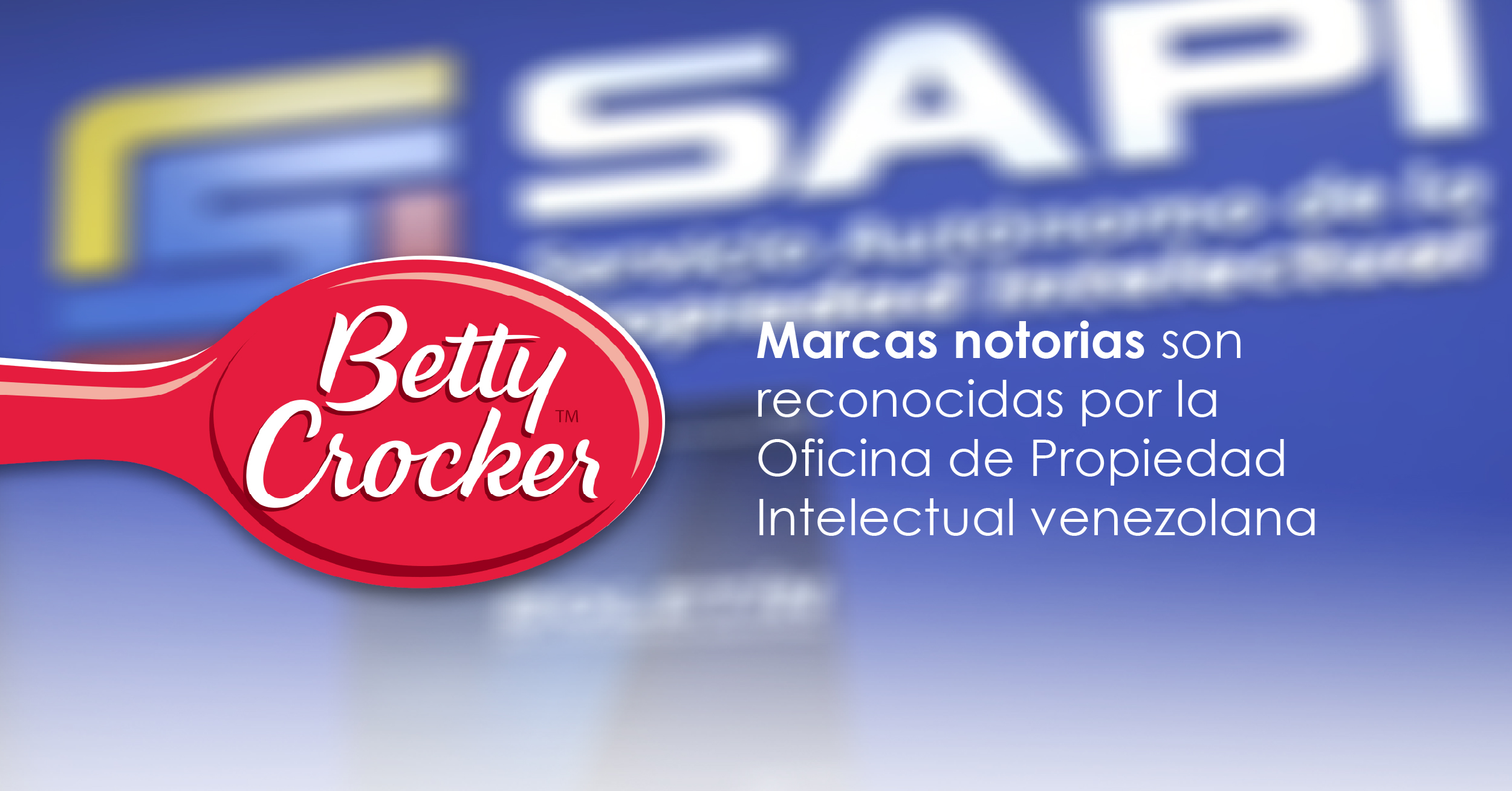
Recent decisions issued by the VETMO that sets out the criterion on well-known trademarks based on the Paris Convention and the TRIPS Agreement.
This article first appeared in WTR Daily, part of World Trademark Review, in June 2022. For further information, please go to www.worldtrademarkreview.com.
Caracas, June 7th 2022. The Venezuelan Intellectual Property Office (SAPI) in recent decisions establishes the guidelines and criteria for the recognition of well-known trademarks in Venezuela, based on the standards set forth in the Paris Convention and the TRIPS Convention of the World Trade Organization.
Recently, SAPI recognized the notorious status of the trademarks “BETTY CROCKER” and “BLUE CROSS” and declared upheld the oppositions filed by General Mills Inc. and Blue Cross and Blue Shield Association, respectively, against the registration of the marks “BETTY CROQUER”, to identify services and products included in classes 38, 42 and 16 international and “CRUZ AZUL PREMIUM”, in class 36 international.
The Registration Office, based on the provisions of Article 6 Bis of the Paris Convention, states that the notoriety of a mark may be recognized ex officio or at the request of the interested party. Likewise, the rule is applicable both to trademarks of goods and services, and, of great relevance, the interpretation by which they consider that it is not necessary to require that the well-known trademark be registered in Venezuela. In this sense, the Registration Office understands and finds justification for the exceptional recognition of well-known trademarks, in the protection of both consumers and owners from acts of unfair competition, as a result of the use of a similar trademark.
Regarding the use or registration of the notorious mark in the country to be eligible for the recognition of such status, the Registration Office indicates that “the trademark of goods or services may be well known in a country before being registered in that country, in view of the effects caused by advertising in other countries, even before it is used in that country“. Hence, under this criterion, they provide that neither the registration nor the use of a well-known trademark in the country should be required for its protection to be recognized, it being sufficient to prove its use or registration in any of the member countries of the Paris Convention.
The Registration Office understands that the causes that may lead a trademark to become notorious are diverse and that these are due to market conditions, such as, advertising intensity, quality of the products, use of the trademark, which are independent of the existence of a trademark registration, since the facts assessed may have occurred or developed outside the territory where protection is claimed.
In relation to the proof of notoriety, the decision accepts the criterion according to which notoriety must be proved by the party claiming protection, using as a reference for its evaluation the guidelines set forth in the preliminary interpretations of the Andean Court, such as the extent of its knowledge among the consuming public as a distinctive sign of the goods or services for which it was granted, the intensity and scope of diffusion and advertising or promotion of the trademark, the seniority of the trademark and its constant use.
Particularly, in the referenced cases among the evidence provided by the applicants and which served for the examiner to determine the notoriety status of the marks “BETTY CROCKER” and “BLUE CROSS”, is an affidavit stating the following:
– Part of the history of the company and of the mark seeking protection, as well as its origin and importance, mentioning the year in which it was created.
– Data on the size of the company, such as the number of employees, the amount of annual sales.
– References about the presence of the trademark in different countries of the world, including some Latin American countries.
– Copy of the trademark registrations in different countries.
– Expenses associated with the advertising of the brand
– Various printed materials, such as illustrations, packaging, magazines, posters, copies of advertisements in North American newspapers and brochures.
This precedent is of great interest considering that our Industrial Property Law of 1955, reinstated in 2008 after Venezuela´s withdrawal from the Andean Community (CAN), does not establish provisions related to notoriety. Hence, these decisions comply with SAPI´s previous announcement as of October 2020, by which the provisions of the Paris Convention and the TRIPS are of direct application and prevail over the Andean Community Law.







